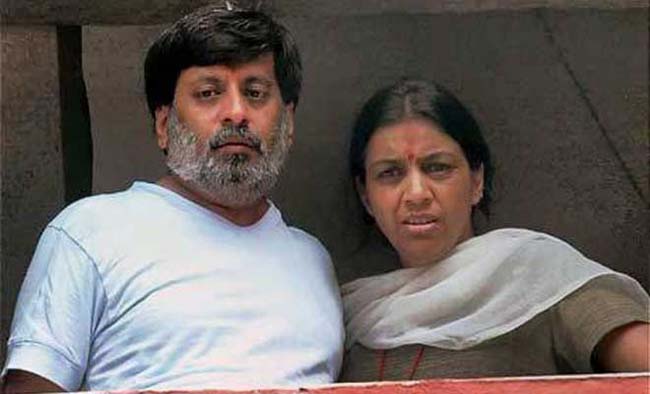Mumbai: The Bombay high court on Tuesday rejected a petition filed by Noida dentist couple — Rajesh and Nupur Talwar — convicted for murdering their 14-year-old daughter Aarushi and house help Hemraj, seeking to restrain director Manish Gupta and UVI Film Production from releasing their film Rahasya.
The division bench of justice VM Kanade and justice Revati Mohite-Dere rejected the petition on grounds there was no similarity in the case of the dentist couple and the film’s story-line.
“The conflict between fundamental right of fair trial of an individual and the freedom of speech and expression would arise when there are similarities in the storyline of a film and the prosecution case,” the judges said.
“But in this matter, we have already recorded our finding that there was no such similarity and therefore no question of conflict arises,” they added, while disposing of the petition filed by the couple.
The bench also clarified that one of the judges, justice Mohite-Dere, had seen the movie and found it dissimilar from the prosecution case in the Aarushi murder case.
On May 16, 2008, eight days before what would have been the teenager’s 15th birthday, Aarushi was found brutally murdered inside her bedroom. Her parents claimed to have slept through the incident in an adjoining room, but the police found no signs of forced entry or robbery. A day later, the police found the body of Hemraj, the Talwars’ domestic help on the terrace of their house in Noida.
The dentist couple was prosecuted for the two murders on the basis of circumstantial evidence and on November 26, 2013, a trial court at Ghaziabad held the couple guilty of the double murder.
The Talwars had approached the high court contending there were glaring similarities in the prosecution case of Aarushi’s murder and the story of the film and therefore the film should not be allowed to be released till the time their appeals challenging the conviction were decided by the Allahabad high court.
It was argued on behalf of the couple that the entire film, except for a few scenes in the end, was similar to the real life incident. The Central Board for Film Certification (CBFC) had, however, maintained that the movie was not based on the double murder case and the storyline was distinct from the facts unfolded in the criminal case.

